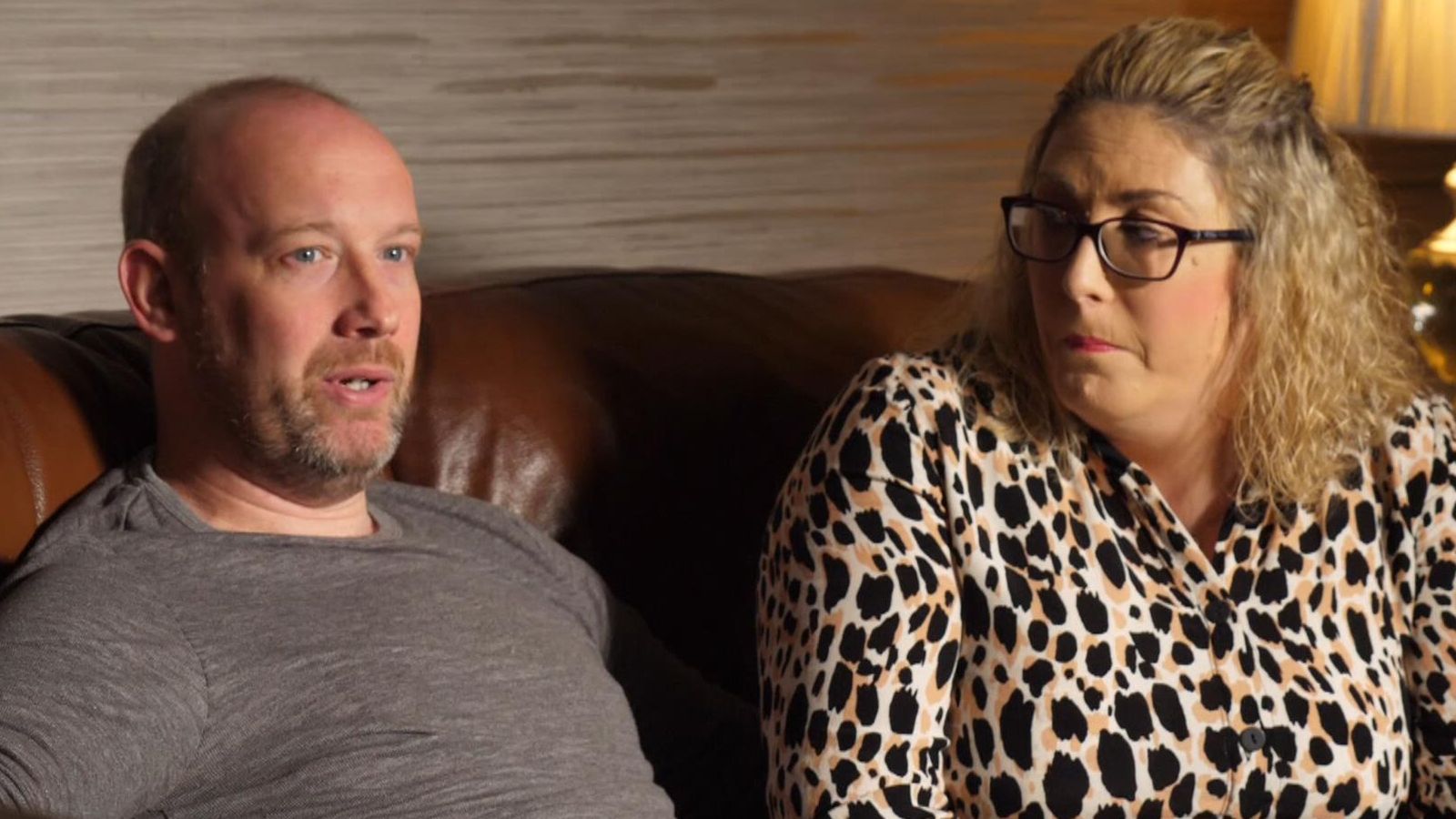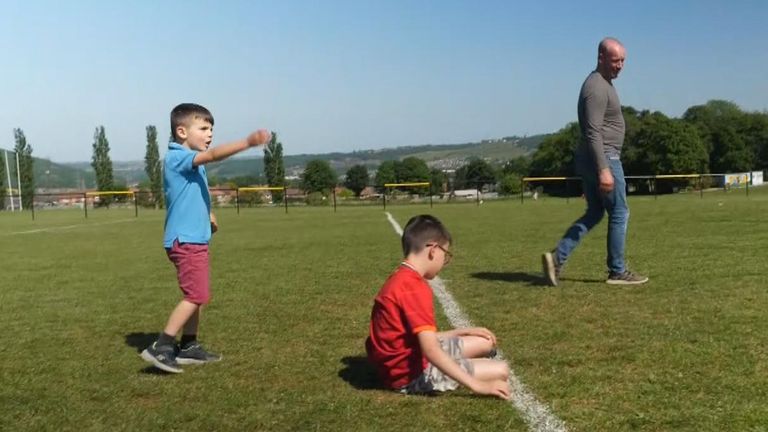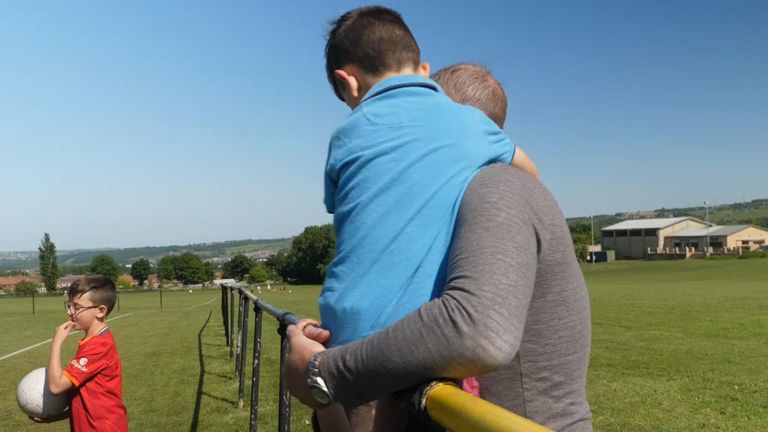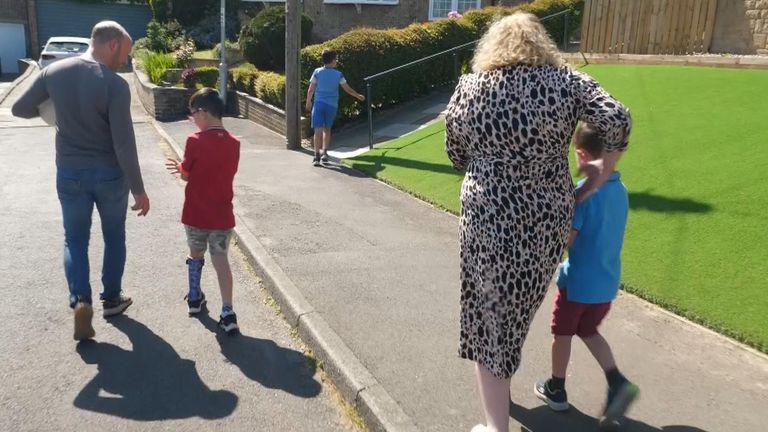Parents ‘broken’ by withdrawal of adoption payments say funding is a ‘postcode lottery’


Michelle Haigh can still remember the first time she saw a picture of her adopted son, Thomas.
Unable to have children, she and her husband Gary had decided they’d like to begin a family of their own, contacting a regional adoption agency nearby, One Adoption South Yorkshire.
She said: “We got profiles sent to us, where you read the background story, and then Thomas’s profile came through our letterbox.
“I knew he was my boy, as soon as I saw him and I instantly said I wanted to proceed.”
Nine years on, the couple have not only taken in Thomas, who is now 10, but also his siblings, Lucas, 8, and Freddie, 5.
However, Michelle says their family unit has been “broken,” by a decision to withdraw their financial support, known as the adoption allowance.
The Haighs claim that, despite encouraging them to keep the boys together and promising to support each boy until they turned eighteen, they received little notice from their local authority before the money was stopped.
Sarah Johal, the National Strategic Adoption Lead for England, said their story is one of a growing number of similar cases, with local authorities, who all set their own adoption allowance policies, trying to save money in a difficult financial climate.
Ms Johal wants ministers to standardise the financial support given to adoptive parents, adding that the current guidance needs to be changed.
Advertisement

She said: “I think essentially, it is left to each local authority to use their discretion as to how they apply the regulations and guidance.
“It’s quite outdated and it doesn’t necessarily reflect the reality of the children and families we currently support.”
As it stands, adoption allowance is a blend of legislation and statutory guidance, set by each local authority at their discretion.
It is designed to encourage people to take in children who might otherwise not be adopted due to the extra costs of looking after them and is usually paid weekly or monthly.
The amount paid is often calculated based on the adoptive parents’ incomes.

Ms Johal is also calling on the government to create a uniform means testing tool, completely waiving the financial assessment in certain cases involving children that wait longer for adoption such as sibling groups, children with complex additional needs and those from ethnic minority groups.
“It feels that if we can get more guidance around how local authorities use that discretion and in what circumstances and get more agreement around that across the country, it would be really helpful.”
The postcode lottery she described is being felt by the Haighs.
Their funding, which was originally around £631 a fortnight has been partially restored, but they are still feeling the financial strain.

The pair, who live in West Yorkshire, have been forced to take out loans, cut back on essentials and put their home on the market, changes that have affected them and the children.
Gary Haigh said: “We try and keep them out of it, so they’re not aware of it, but they see arguments all the time from us about money.
“They’re asking: ‘Why can’t we go on holiday when our friends go on holiday, why can’t we go to the park, why haven’t we got this or that?'”
His wife said: “I’m constantly feeling like I’m letting them down because I’m worried about money.
“Every time we get a payment, we’re now feeling insecure at the fact that the next payment might not arrive in the next fortnight. I’m so stressed out that I’m not being the best mum I can be for my boys.
The pressure has left them seeking mental health support for Thomas who worries the house being for sale means he will be sent to another family.
His brother Lucas has cerebral palsy, meaning he already needs additional support.
A recent survey by the charity Adoption UK found adoptive parents are struggling with the cost of living crisis and most have not received more support.
It revealed 26% of adoptive parents said they were in receipt of adoption allowances or other financial support from their agency.
Of these, only 6% said there had been an increase in the amount paid during 2022.
Alison Woodhead, Adoption UK’s Director of Public Affairs and Communications, also called for more consistent guidance on the financial support available.
She said: “For one-off payments and ongoing allowances, we need clear national standards defining under which circumstances these will be awarded, and how much is appropriate in various cases.
“The current situation is vague, subject to too much interpretation and is not centred around the needs of the child.”
Doncaster Council said: “The current guidance was reviewed in early 2022. It outlines that an allowance can be paid to the adoptive parent(s) for sibling groups for every subsequent sibling placed with the family.
“Every adoptive family can request a Statutory Assessment Support Need from their local Regional Adoption Agency… this looks at a range of needs from mental health, and the need for therapeutic services, to additional support during the child’s education.”